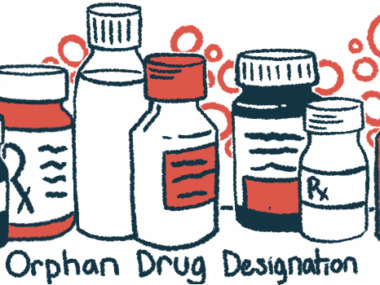ELVN-001 shows cancer-killing potential in Phase 1 CML study
Favorable safety data from ongoing ENABLE trial in heavily pretreated patients
Written by |

ELVN-001, an experimental treatment for chronic myeloid leukemia (CML), a type of blood cancer, is showing promising proof-of-concept effects for killing cancer cells in patients who’ve previously received other treatments, according to data from an ongoing Phase 1 trial.
Enliven Therapeutics, the company developing ELVN-001, will be presenting interim findings from the trial next month at the European Hematology Association 2025 Congress, in an oral presentation titled “ENABLE: A Phase 1a/1b Study of ELVN-001, a selective active site inhibitor of BCR::ABL1, in patients with previously treated CML.”
“We are strongly encouraged by the consistent efficacy, safety and tolerability data from the ongoing ENABLE trial in heavily pretreated patients with CML,” Helen Collins, MD, chief medical officer of Enliven, said in a company press release. “We look forward to providing additional updates at the EHA Congress in June.”
Like other types of leukemia, CML is marked by the uncontrolled growth of immature blood cells. In most patients, the cancer cells harbor a specific genetic change called the Philadelphia chromosome. This change leads to the production of an abnormal protein called BCR-ABL1, which drives cancer cell growth.
ELVN-001 is oral therapy designed to block activity of BCR-ABL1 protein
ELVN-001 is an oral therapy designed to block the activity of the BCR-ABL1 protein. It belongs to a class of medications called tyrosine kinase inhibitors or TKIs. Several other TKIs that target the BCR-ABL1 protein are approved for CML, including Scemblix (asciminib) and Iclusig (ponatinib).
The Phase 1 ENABLE trial (NCT05304377) is a first-in-human study testing ELVN-001 in adults with CML who are positive for the BCR-ABL1 protein and who either cannot take or have failed treatment with other TKIs. As of late February, the study was still enrolling participants at sites worldwide.
As of January, the cut-off date for the EHA presentation, a total of 74 people had been enrolled in the trial. Two-thirds of these participants had previously been treated with at least three other TKIs, such as Scemblix and/or Iclusig. The participants were treated with ELVN-001 at doses ranging from 10 to 160 mg per day. Most of the patients are still in the trial. The median treatment duration was about six months.
Efficacy data were available for 36 trial participants who had been treated for at least six months and who did not have a T315I mutation, the most common BCR-ABL1 mutation that can cause resistance to TKIs in patients.
Results showed nearly half (44%) of these participants were in major molecular response at six months, meaning that less than one out of every 1,000 cells in their blood harbored the cancer-driving BCR-ABL1 protein. Among 25 participants who were resistant to their last TKI, 10 (40%) were in major molecular response after six months on ELVN-001. All of the participants who achieved or maintained major molecular response remained in this response, according to the latest available data.
“These data continue to demonstrate the potential for ELVN-001 to achieve a best-in-class profile compared to the available active-site TKIs,” Collins said.
Safety data from ENABLE have so far been generally positive. Serious safety issues were reported in 15% of patients, with the most common being low counts of platelets (cell fragments that help blood clot) or low counts of neutrophils (a type of immune cell).
A major goal of this first-in-human study is to look for dose-limiting toxicities, or side effects suggesting that a dose of ELVN-001 is too high to be given safely. So far, a maximum tolerated dose has not been reached. Less than 10% of participants had dose interruptions, and less than 5% had dose reductions.
Overall, the researchers concluded “ELVN-001 demonstrated favorable safety and tolerability across a wide range of doses.”




